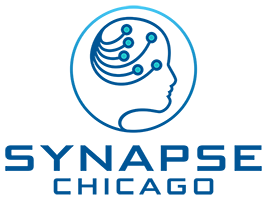an effective approach to insomnia
The effects of insomnia
Do you lie in bed at night thinking about how long it will take you to fall asleep? Do you have a mind that just won’t shut off? Insomnia is a sleep disorder that affects one’s ability to stay or fall asleep. Short term consequences of disruptive sleep include increased stress, poor cognition, irritability, and memory deficits. For adolescents, poor sleep can affect school performance and psychosocial skills. Long term effects of sleep deprivation in otherwise healthy adults can lead to high blood pressure, cardiovascular disease, weight gain, and even increase your risk of cancer. Ultimately, disruptive sleep can lessen your quality life and impede you from being your best self.

Insomnia: a menacing sleep problem
If you are struggling to fall asleep or stay asleep, or you feel tired in the morning even after a full night’s sleep, you are not alone. Insomnia is a global health issue, with one in three people experiencing insomnia in their lifetime. About 10% of US adults are reporting insomnia that is severe and debilitating. Despite these numbers, many people with sleep problems are not receiving help, mainly because they do not recognize insomnia as a serious but treatable condition.
The perils of sleeplessness
Insomnia affects men and women of all age groups, although it seems to be more common in females and the elderly. There are many dangerous effects of not sleeping well. Persistently disturbed sleep can affect body processes resulting in physical health issues.
Sleep is essential for recovery and restoration. Loss of sleep or poor-quality sleep is linked to poor concentration and memory, impaired performance at work or school, feelings of depression, and various conditions such as gastrointestinal problems, cardiovascular diseases, and complications during pregnancy.

Current insomnia treatment options
Quality sleep is essential and its role in brain function and systemic physiology can not be understated. Don’t let disruptive sleep affect your optimal health. Synapse Chicago has proven methods to help you get the restorative sleep that you need.
The Physiology
Neurofeedback has shown positive results in helping to regulate the areas of your brain associated with sleep. Healthy sleep patterns are rewarded and reinforced using real time EEG biofeedback. This can reduce or eliminate the use of drugs, so that your brain can naturally attune itself to better sleep patterns. Studies have shown that neurofeedback can boost REM sleep, improve total sleep time, and help maintain sleep after sleep onset
The Psychology
CBT-I, or Cognitive Behavioral Therapy for Insomnia, explores the connection between your thoughts and your sleep patterns. In this multi-component therapy, feelings and behaviors are discussed with our Clinical Psychologist in order to assess what is causing those sleepless nights. Mindfulness, progressive relaxation, and breathing techniques are also utilized to help reduce stress and prepare your body for a restorative night’s sleep.
Synapse Chicago is here for you
regulate your sleep pattern with neurofeedback
